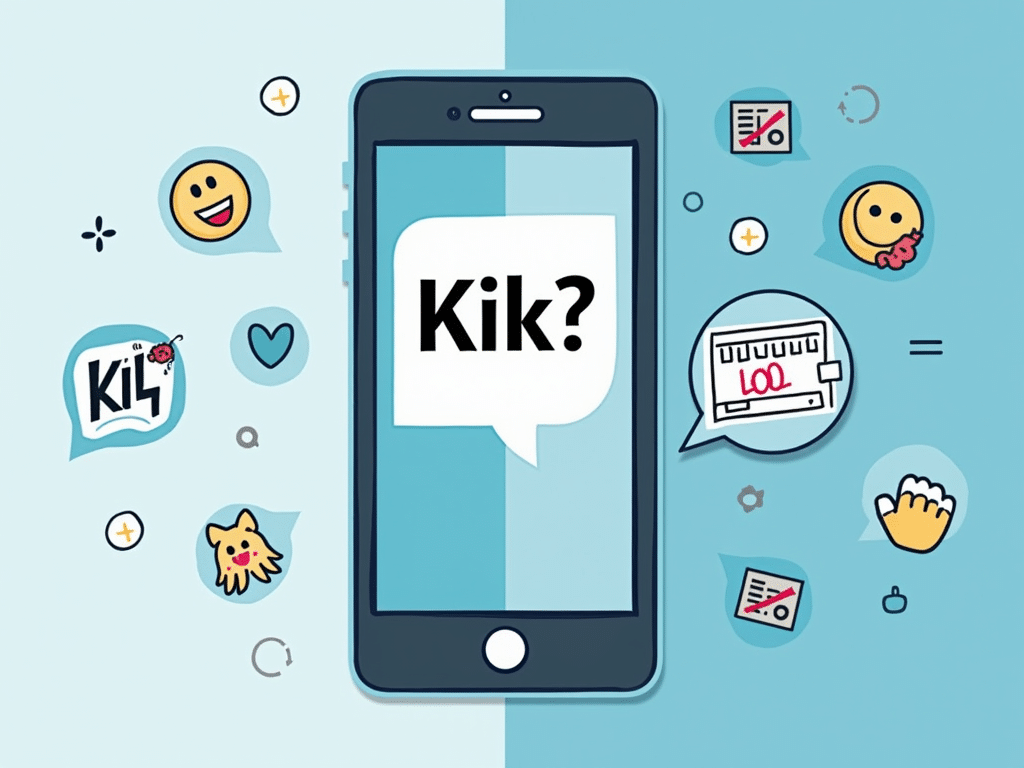The term Kik has two main meanings: it refers to a popular messaging app and is also used as slang in certain contexts. Whether you’re navigating online chats or exploring the digital world, understanding “Kik” can help you stay in the loop. Let’s break it down.
| Aspect | Details |
|---|---|
| Primary Meaning | Kik is a messaging app known for its anonymity and multimedia sharing features. |
| Slang Usage | In slang, “Kik” can be shorthand for casual expressions or even mistyped versions of “LOL.” |
| Popularity | Widely used by teens and young adults for private and group chats. |
| Risks | Anonymity on Kik can lead to misuse, requiring users to exercise caution. |
What is Kik?
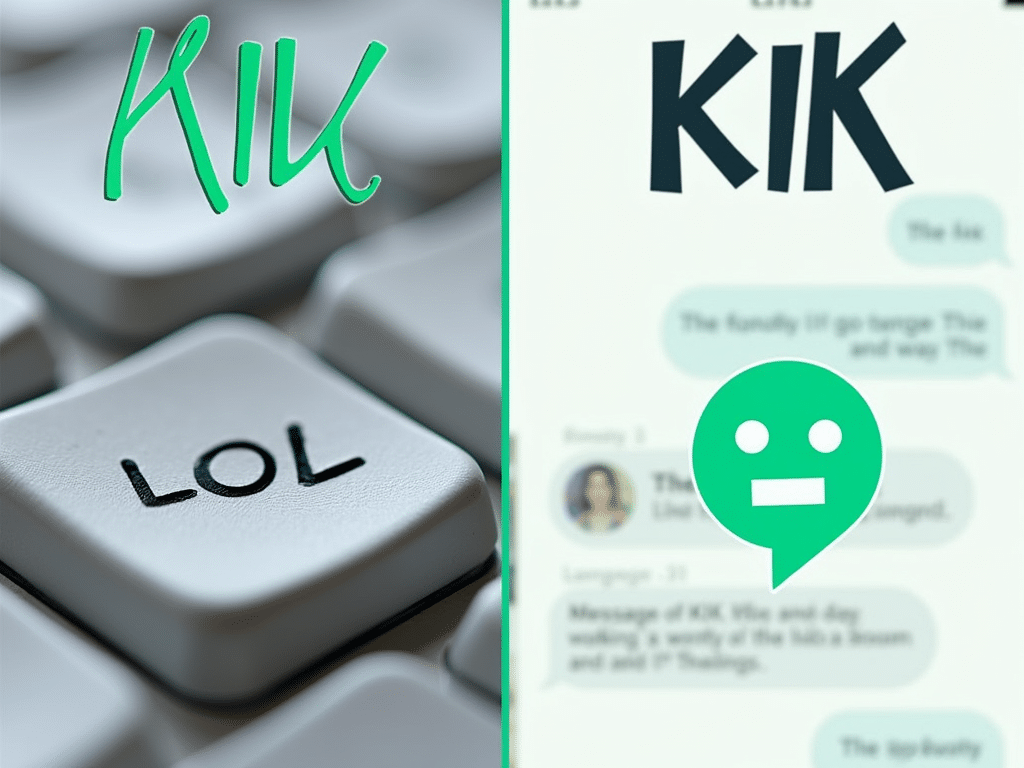
Kik Messenger: The App
Kik Messenger is a free messaging app that lets users send texts, photos, videos, and more—all without needing a phone number. Instead, users create unique usernames, making it a favorite among teens and young adults who value privacy.
Also read: Dapper
Why People Love Kik
- Anonymity: You don’t need to share your phone number.
- Multimedia Features: Share photos, videos, GIFs, and even sketches.
- Group Chats: Join public groups using hashtags or create private ones with friends.
- Bots: Play games or take quizzes with Kik’s built-in bots.
Fun Fact
Kik was created in 2010 by a group of university students in Canada. Despite its ups and downs, it remains popular among younger audiences.
What Does Kik Mean in Slang?
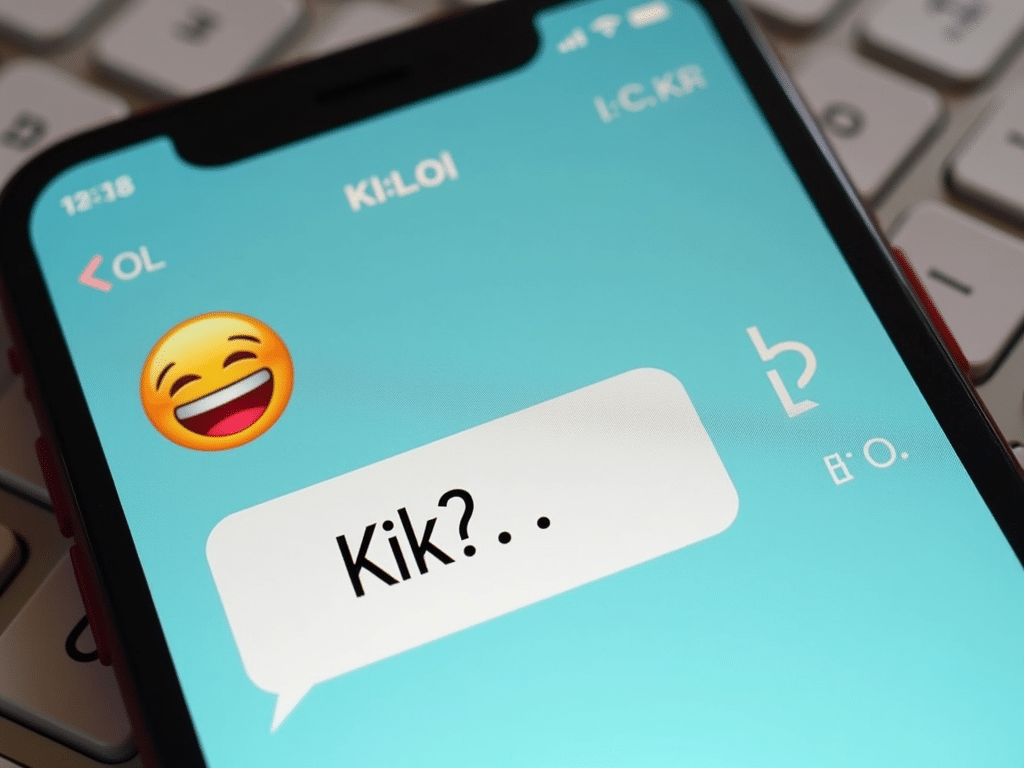
In slang, “Kik” doesn’t always refer to the app. Sometimes it’s just a typo for “LOL” (laugh out loud) because the letters are close on a keyboard. In other cases, people might use “Kik” casually in text to mean something fun or lighthearted.
How is Kik Used in Text?
Here’s how you might see “Kik” pop up in conversations:
- As an Invitation:
- Example: “Hit me up on Kik!”
This means someone wants to chat privately on the app.
- Example: “Hit me up on Kik!”
- As Casual Slang:
- Example: “That joke had me kik-ing!”
Here, it’s used like “LOL,” though this usage is less common.
- Example: “That joke had me kik-ing!”
- Mistyped LOL:
- Example: “You’re so funny kik.”
This is simply a typo but happens often due to keyboard proximity.
- Example: “You’re so funny kik.”
Expert Tips for Using Kik Safely
While Kik offers fun features, its anonymity can be risky. Here are some tips to stay safe:
- Use strong passwords and avoid sharing personal details.
- Only chat with people you know or trust.
- Block/report users who make you uncomfortable.
Also read: Comradery
Why is Kik So Popular Among Teens?
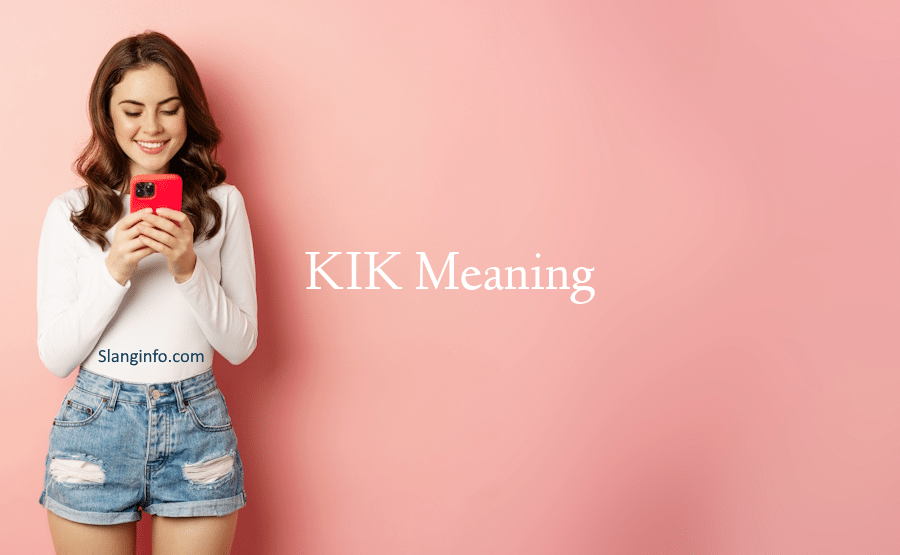
Kik’s popularity comes down to one key factor: anonymity. Unlike apps like WhatsApp or iMessage, Kik doesn’t require a phone number to sign up—just an email and a username. This makes it appealing for teens who want to chat without giving away too much personal information. Plus, the app’s casual vibe and multimedia features make it feel less formal than traditional texting.
Key Features That Drive Its Popularity
- No Phone Number Needed: Users can stay anonymous by sharing only their username.
- Public Groups: Hashtag-based groups let people connect over shared interests like gaming, memes, or music.
- Customizable Chats: Fun features like stickers, GIFs, and even in-chat games keep conversations engaging.
- Built-In Browser: Users can surf the web without leaving the app.
The Risks of Using Kik
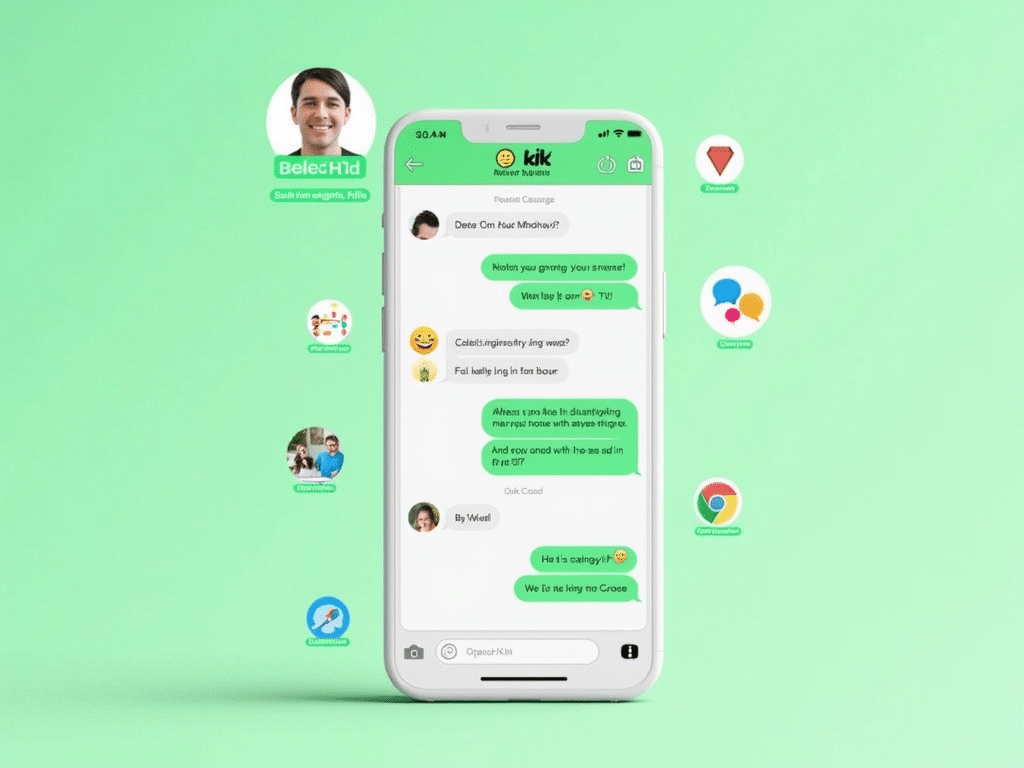
While Kik has its perks, it’s also faced criticism for enabling risky behavior due to its anonymity. Here are some of the main concerns:
1. Privacy Issues
Because Kik doesn’t require a phone number, it’s easy for people to create fake accounts. This can lead to:
- Catfishing (pretending to be someone else online).
- Predatory behavior, especially in public groups.
2. Exposure to Inappropriate Content
Public groups on Kik can sometimes include explicit or harmful material. Without strong moderation, users—especially younger ones—might stumble upon things they shouldn’t see.
3. Lack of Parental Controls
Unlike other apps, Kik doesn’t offer robust parental control features. This makes it harder for parents to monitor how their kids are using the app.
Also read: Leachy
How Parents Can Help Teens Use Kik Responsibly
If your teen uses Kik, here are some practical tips to keep them safe:
- Have Open Conversations:
- Talk about online safety and why it’s important not to share personal info with strangers.
- Encourage them to come to you if they encounter anything uncomfortable.
- Set Boundaries:
- Limit their time on the app.
- Encourage them to stick to private chats with friends rather than public groups.
- Teach Them How to Block/Report:
- Show them how to block users or report inappropriate content through Kik’s settings.
- Explore Alternatives:
- If privacy is a concern, consider safer messaging apps like WhatsApp or Signal.
Kik in Youth Culture
Kik isn’t just an app—it’s a part of youth culture. For many teens, it’s a way to connect with friends without the pressure of being “seen” on social media platforms like Instagram or Snapchat. The ability to join public groups also allows users to explore niche interests and meet new people.
However, this same openness is what makes Kik controversial. It’s important for young users—and their parents—to strike a balance between having fun and staying safe.
Kik App vs Other Messaging Apps
Here’s how Kik stacks up against other popular messaging platforms:
| Feature | Kik | Snapchat | |
|---|---|---|---|
| Anonymity | High (username only) | Low (requires phone #) | Medium (Snap ID) |
| Multimedia Sharing | Yes | Yes | Yes |
| Public Groups | Yes | No | No |
| Parental Controls | Limited | Moderate | Moderate |
| Target Audience | Teens & young adults | All ages | Teens & young adults |
Also read: SNAFU
Is Kik Right for You?
Whether you’re a parent trying to understand what your teen is using or someone curious about the app, it’s clear that Kik has its pros and cons. It offers a unique way to connect with others but requires caution due to its anonymity and lack of moderation.
Final Thoughts on “Kik”
Understanding what “Kik” means—both as an app and as slang—can help you navigate online conversations more effectively. While the app is popular among younger users for its privacy and fun features, it’s important to stay mindful of its risks.
By staying informed, you can enjoy the best parts of digital culture while keeping yourself (and others) safe! 😊

